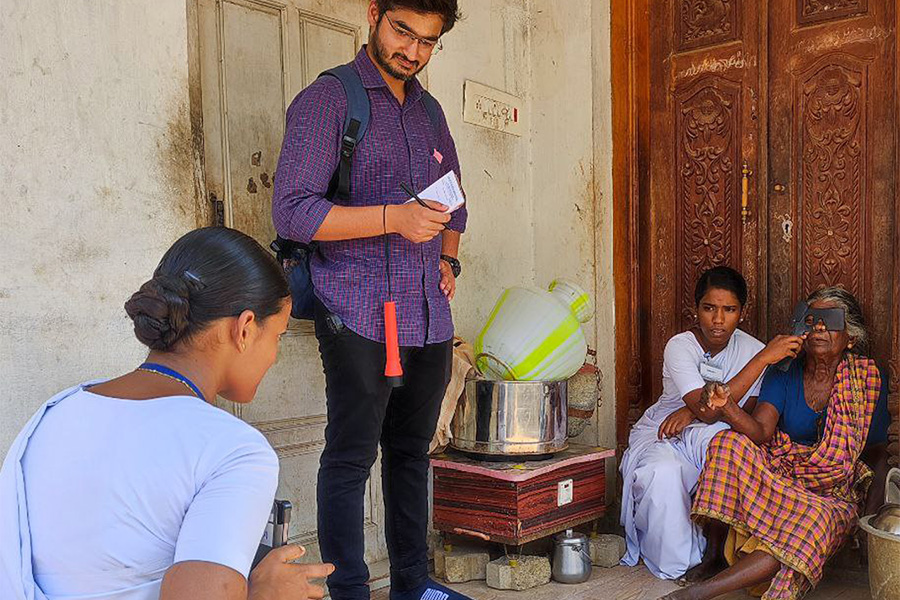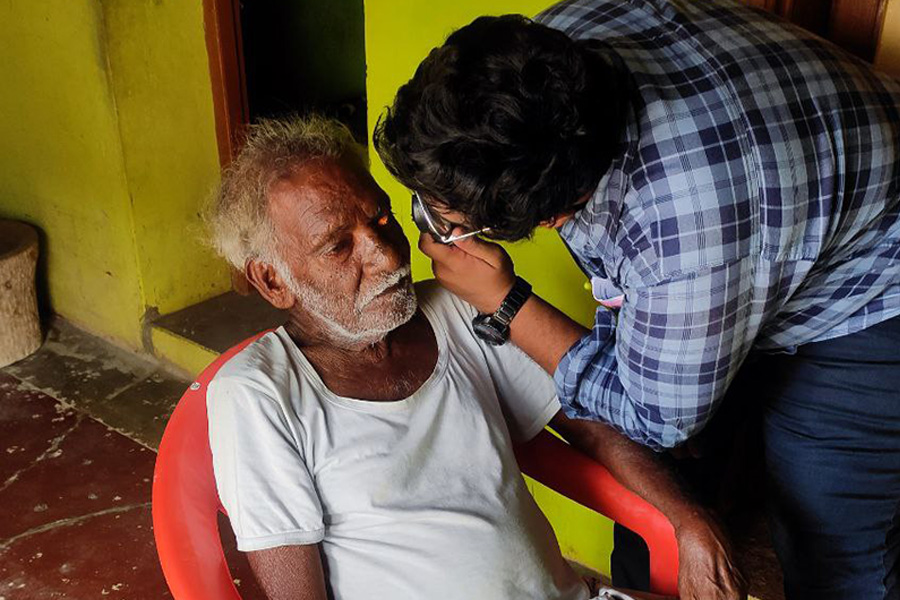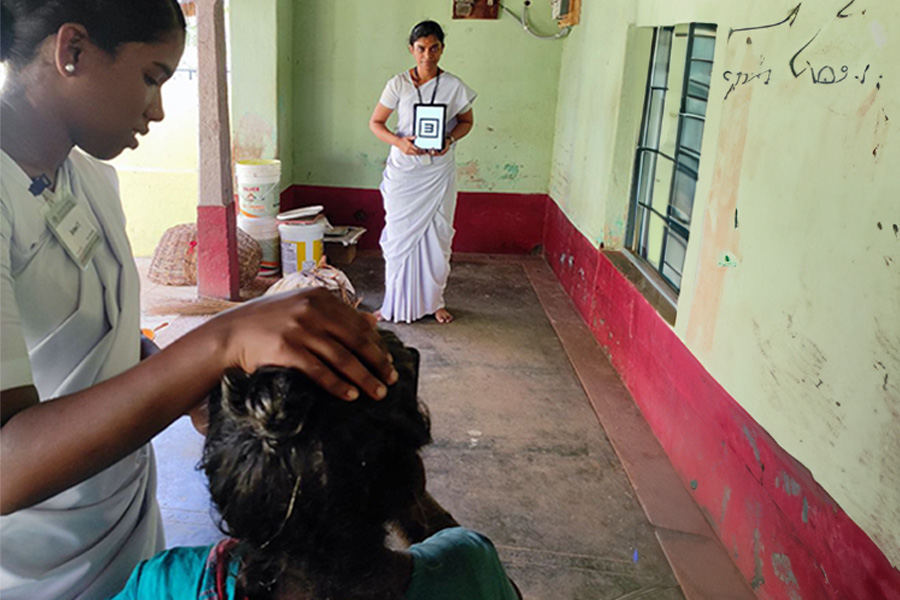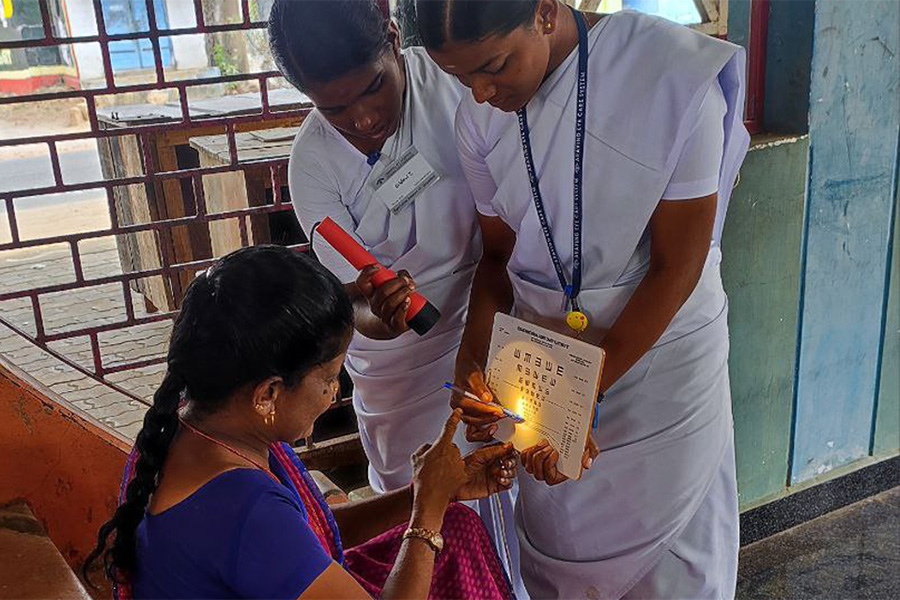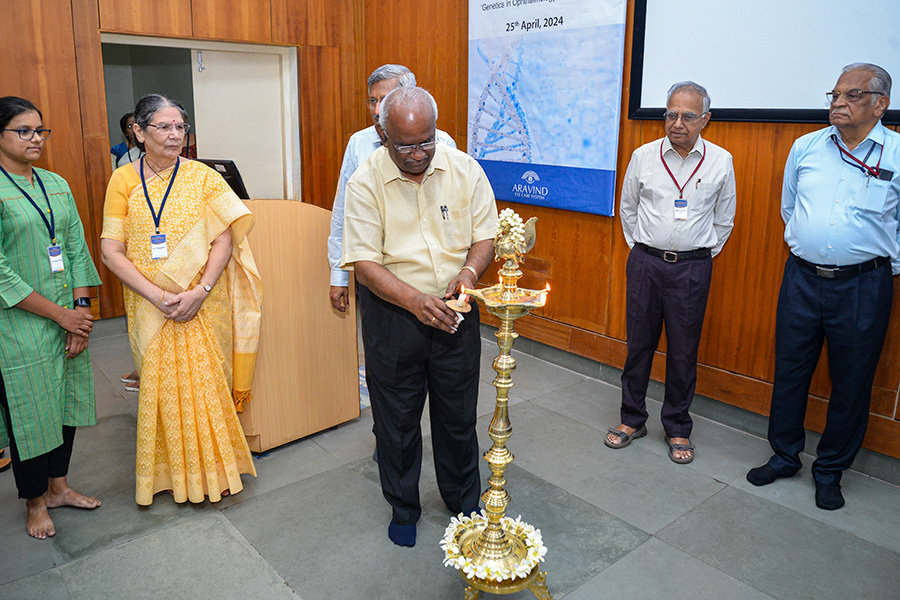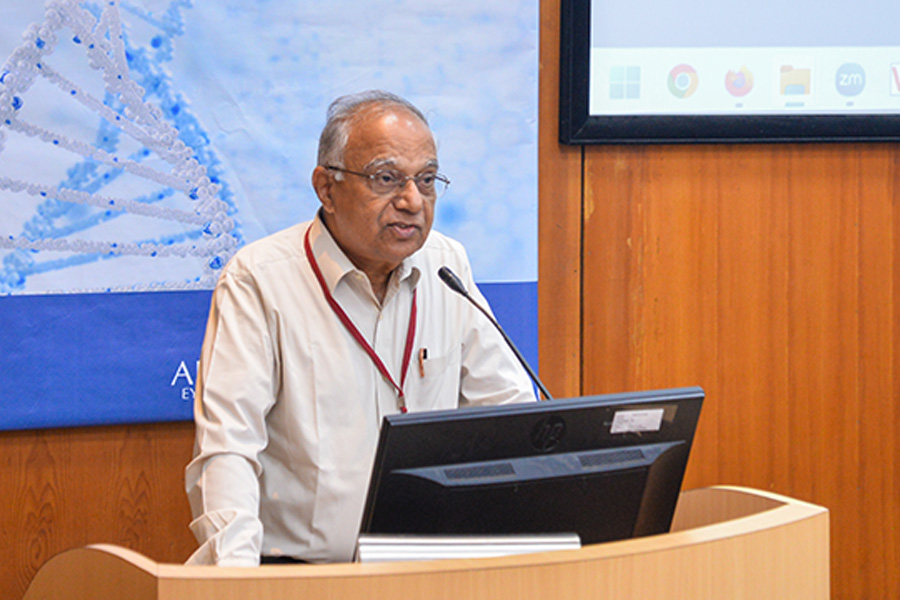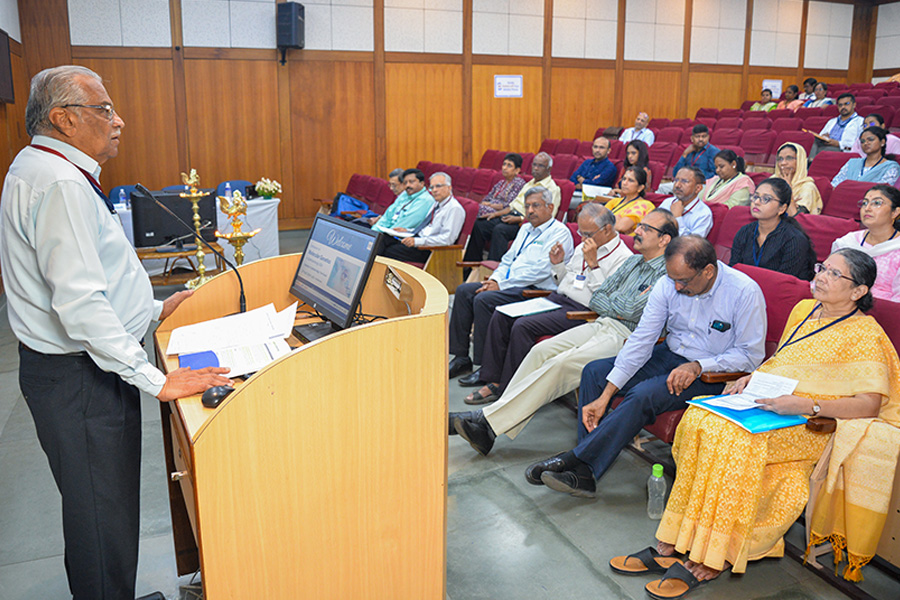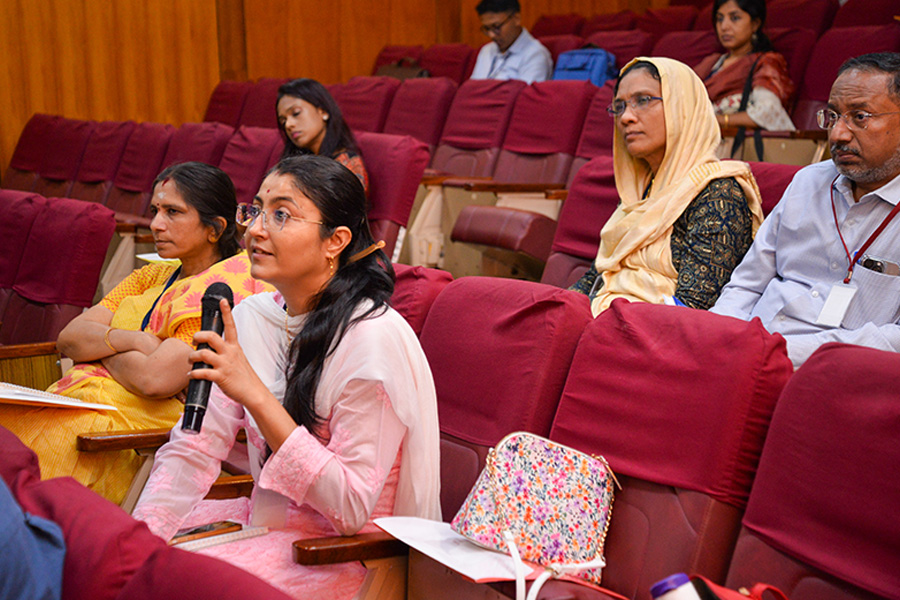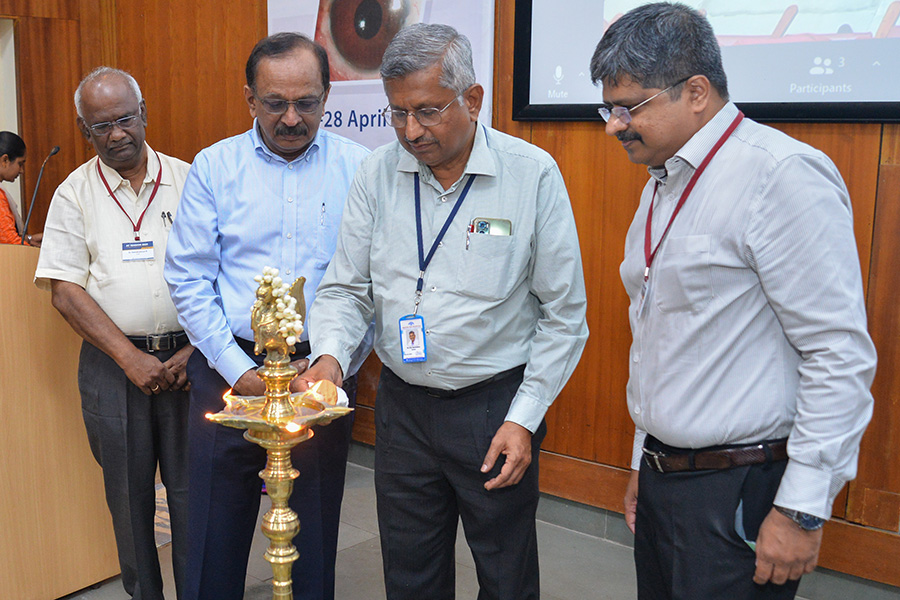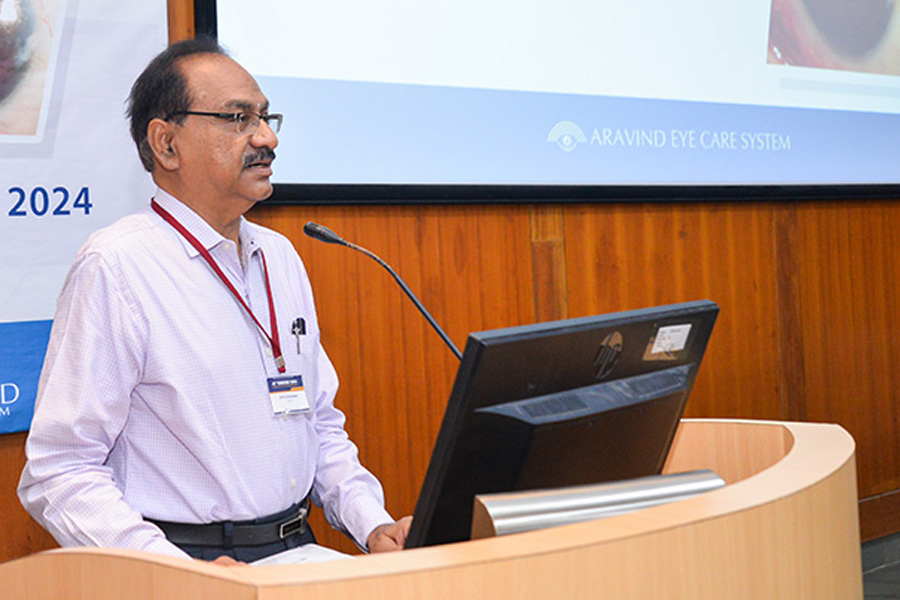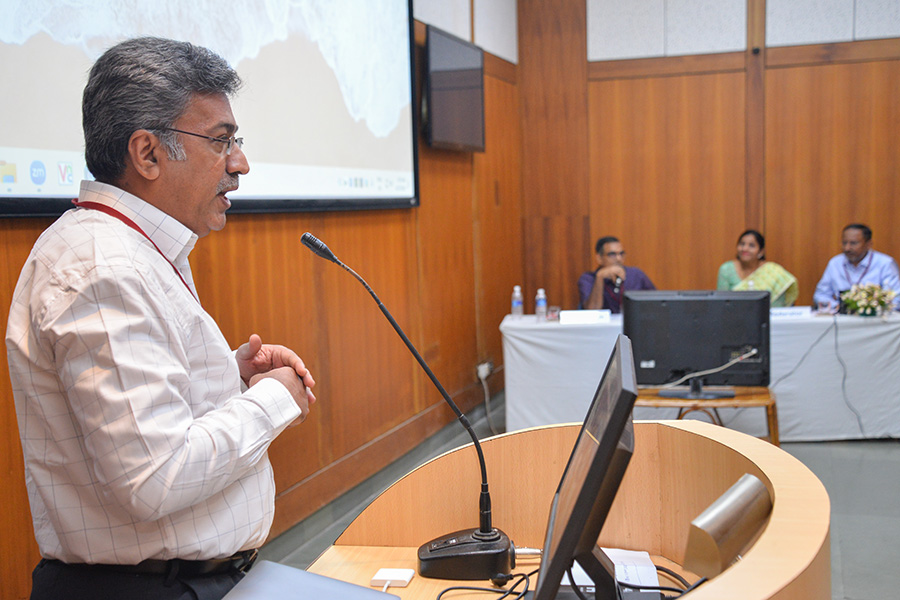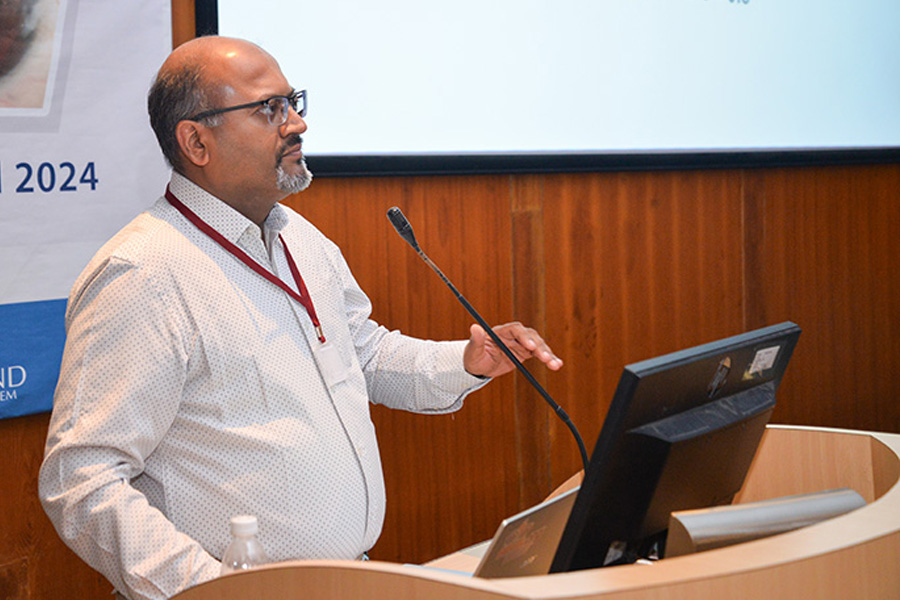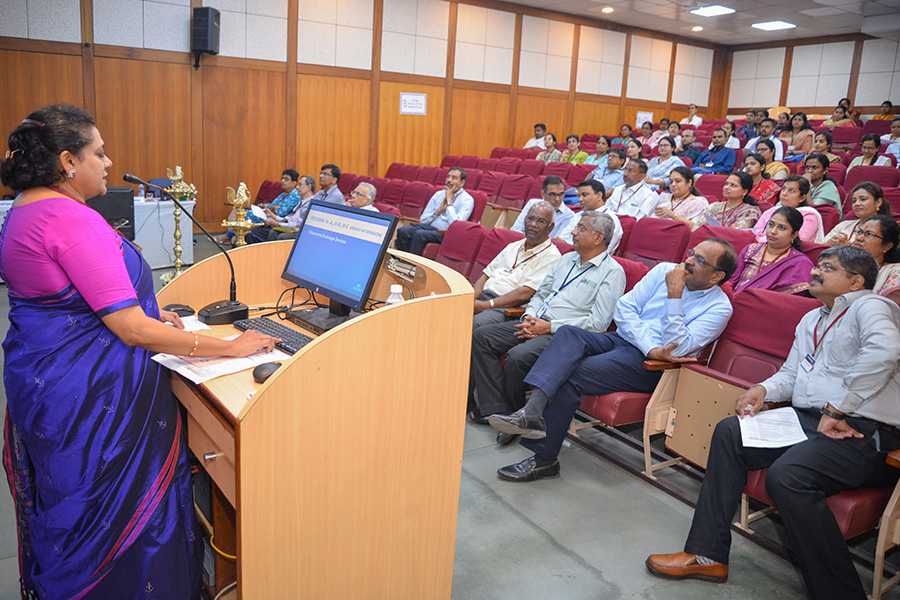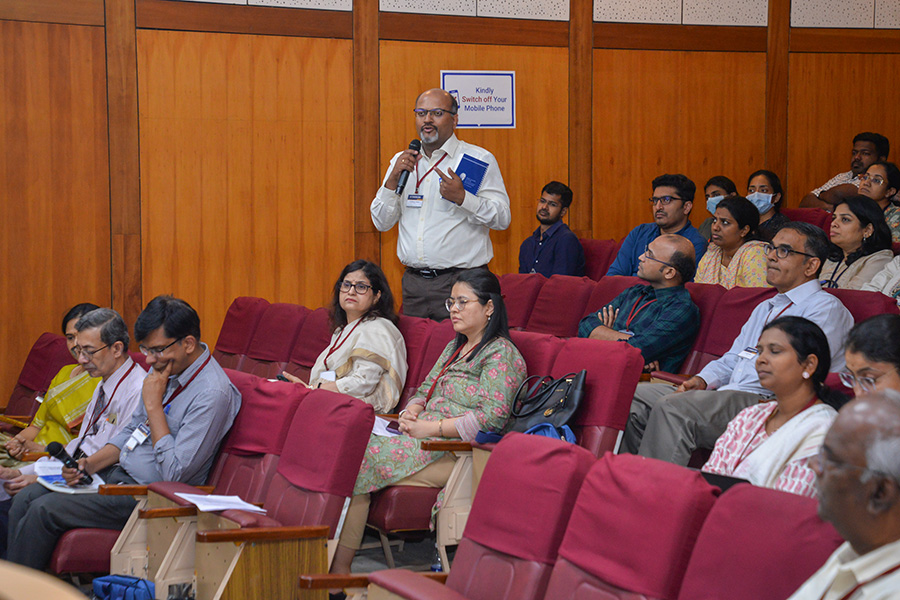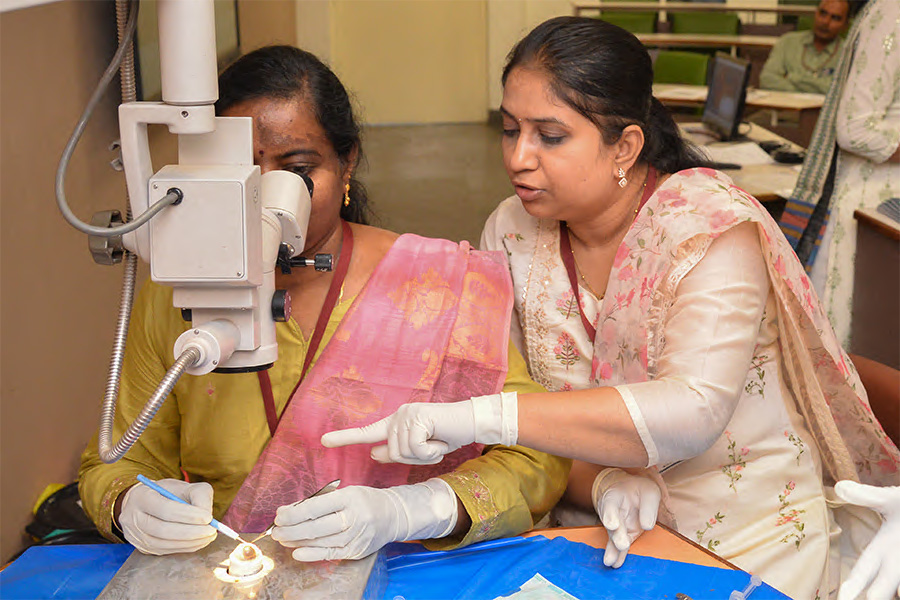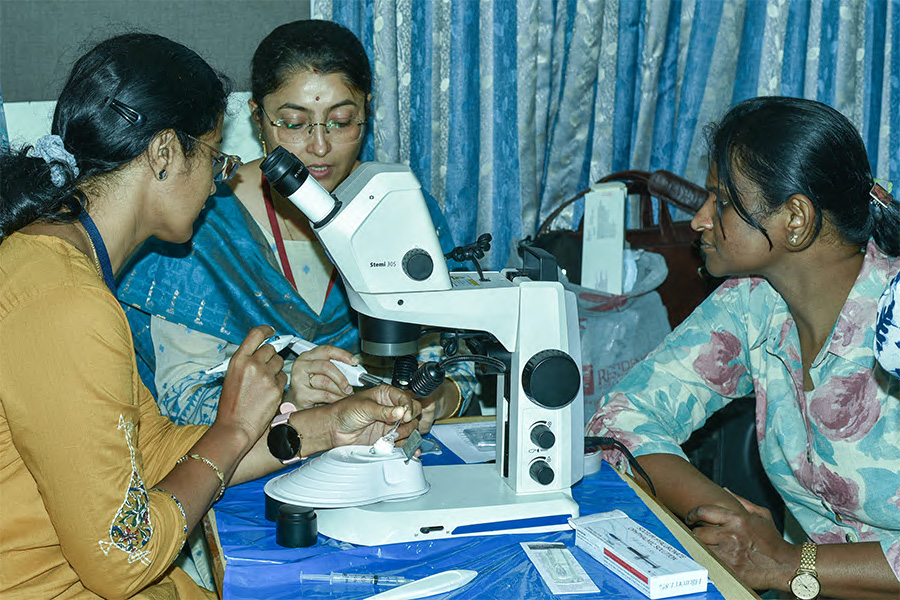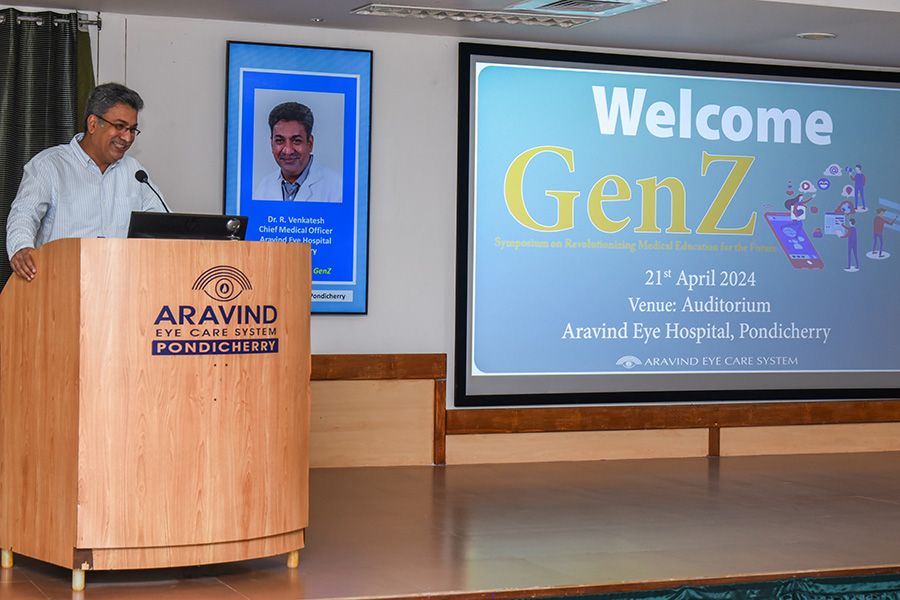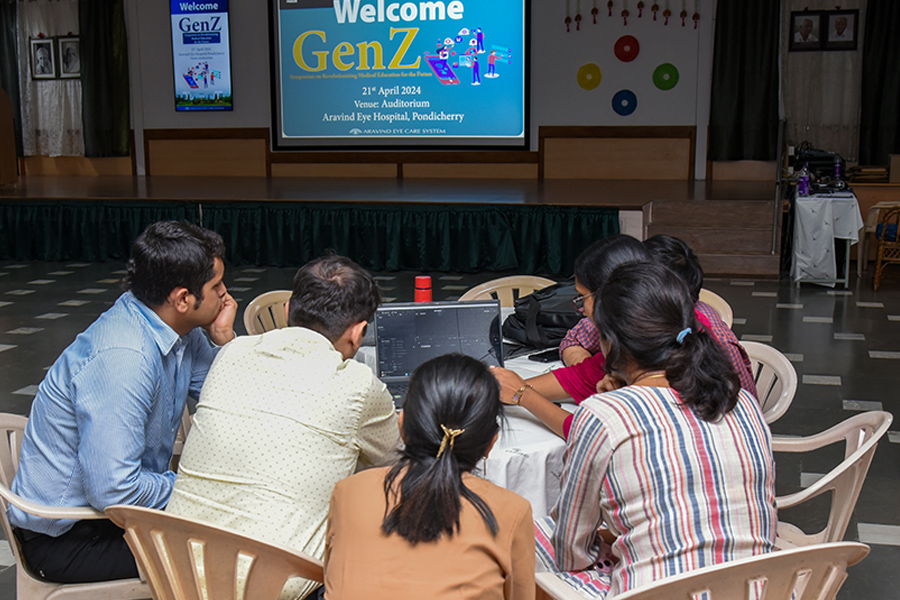RAAB7 Prevalence Survey in Sivaganga District
Aravind-Madurai, March-April 2024
The survey conducted by Aravind-Madurai in Sivaganga district focused on the prevalence of cataracts, refractive errors, and service uptake. The main objectives were to test the Rapid Assessment of Avoidable Blindness (RAAB7) method in the Indian population, specifically in Tamil Nadu, and to validate the feasibility of incorporating near-vision screening into RAAB7. Developed at the International Centre for Eye Health (ICEH), London, UK, the RAAB is a rapid survey methodology designed to assess blindness and visual impairment in people aged 50 and above. The new component of the current RAAB7 included near-vision screening and an assessment of enablers and barriers to the use of near-vision eyeglasses. RAAB7 employs digital data collection along with the use of an integrated Peek Acuity Mobile Application for visual acuity measure.
Prior to starting the survey, a three-day training programme was provided to the survey team by Dr. Sandeep Buttan, a certified RAAB Trainer from Dr. Shroff Charity Eye Hospital, New Delhi. During the programme, Dr. Chandrakumar, Project Director, Tamil Nadu State Blindness Control Society, delivered a keynote address and shared insights on conducting the RAAB6 survey.
During the survey, the team examined 3,582 people aged 50 years and above from 77 different locations. The findings suggest that one-fourth of the surveyed population required some form of eye care and were referred to eye care facilities. If proven, the near vision screening could be integrated into the existing RAAB method, thereby enhancing its benefits for a broader global population.
Symposium on Molecular Genetics in Ophthalmology 2024: Genetics in Ophthalmology; The Future
Aravind-Madurai, 25th April
Organised by Aravind-Madurai, the CME focused on the basics of Genetics in Ophthalmology, specifically on Glaucoma, Retinoblastoma, and Pediatric Eye diseases. Additionally, there were discussions on emerging potential applications of genetic research in glaucoma, with special emphasis on gene therapy and genetic counselling for eye diseases. The panel of external faculty members, including Dr. Arif O. Khan, Cleveland Clinic, Abu Dhabi, and Dr. A.S. Karthikeyan, Dennis Lam Eye Hospital, China, along with faculty from LV Prasad Eye Institute, Narayana Nethralaya, and AIIMS, Delhi, actively participated in the discussions. The CME was awarded 2 credit hours by the Tamil Nadu Medical Council (TNMC). A total of 74 delegates, including 15 faculty members, 34 research scholars, and 25 doctors, attended this programme
AT TENSION 2024: A Surgical CME on Refractive Glaucoma
Aravind-Madurai, 26-28 April
The CME aimed to explore newer horizons in the management of glaucoma, highlighting the continuing relevance of Trabeculectomy and its complications with management, Glaucoma Drainage Devices (GDD) and their surgical techniques and complications with management, and the potential role of minimally invasive glaucoma surgeries (MIGS), and non-penetrating deep sclerectomy (NPDS). Delegates from all over India, representing various institutions, attended the CME and provided valuable inputs. The programme was authorised for 3 credit hours by TNMC. A total of 137 delegates, including 40 faculty members, attended this programme. Additionally, wet lab training practices were conducted on Trabeculectomy, GDD, NPDS, and MIGS for the registered candidates and all internal Glaucoma consultants. They also earned an additional 3 credit hours from TNMC for the wet lab session.
GenZ Symposium
Aravind-Pondicherry, 21 April
Aravind-Pondicherry organised the Symposium, a first of its kind with the aim of delving deep into the psyche of GenZ. It explored how GenZ differ and what new strategies can be incorporated to engage them in learning. The session started with a welcome address by Dr. R. Venkatesh, Chief Medical Officer, Aravind-Pondicherry. The programme featured insightful sessions by Dr. Naveen Radhakrishnan, Dr. Annapurna Kumar, Dr. Pranesh Balasubramaniam, Prof. N. Ananthakrishnan, Dr. Sudha, Dr. Deepak Megur, Dr. Pavan Kumar, Dr. Mahalakshmi, and Dr. Prasanna Venkatesh. The session concluded with a few skill transfer courses on surgical video editing, effective PowerPoint presentations, and how to use social media for the advantage.

